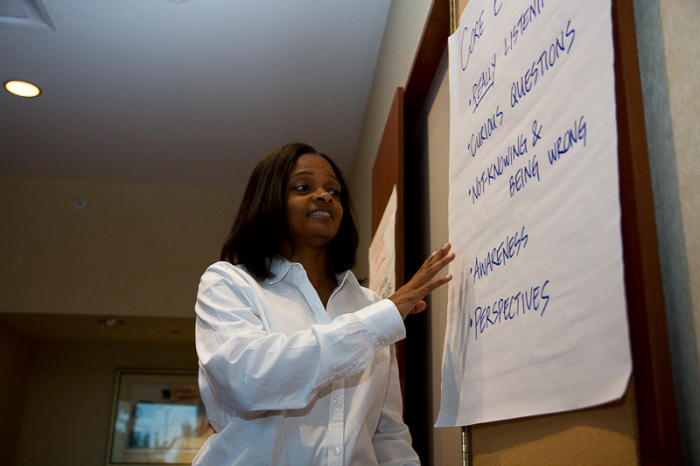Feedback is essential to performance improvement, learning, and growth.
When leaders create a feedback-rich culture where they offer helpful feedback in a timely manner and are open to receiving it themselves, everyone improves.
Effective feedback, both given and received, helps leaders calibrate their impact and effectiveness using both qualitative and quantitative measures. Feedback helps leaders and team members align personal behaviors with organizational goals, reinforce norms, and develop themselves and others in ways that create positive business outcomes.
As Ken Blanchard wrote in his classic management book, The One Minute Manager, “Feedback is the breakfast of champions.”
The Giving and Receiving Effective Feedback workshop provides participants with a proven framework and immediately actionable skillset to share and take feedback in ways that improve performance, build stronger relationships, and increase engagement and commitment.

In this hands-on session, participants learn and practice how to create a positive environment that fosters learning and receptivity to feedback, and to convey information in a way that can be heard, digested, and applied moving forward—whether the feedback is positive, reinforcing, constructive, or even disciplinary.
During this session, participants:
- Understand the importance of creating a feedback-rich environment, and what steps they need to take to create it
- Learn to apply feedback concepts, skills, and techniques to increase positive behaviors and performance
- Learn to adapt their feedback style to different communication and cultural styles
- Practice the skills immediately through giving and receiving feedback in the session
- Understand how to create a safe environment for giving and receiving feedback
- Improve their own self-awareness as leaders
- Expand their emotional intelligence and emotional range
- Learn to listen and probe more deeply
- Partner with others to create plans for behavior or skill changes that stick
Through practicing feedback delivery, learning how to solicit and receive feedback, and practicing how to probe deeper, leaders move away from emotional vulnerability and develop an awareness that asks, “What can I learn from this?”

